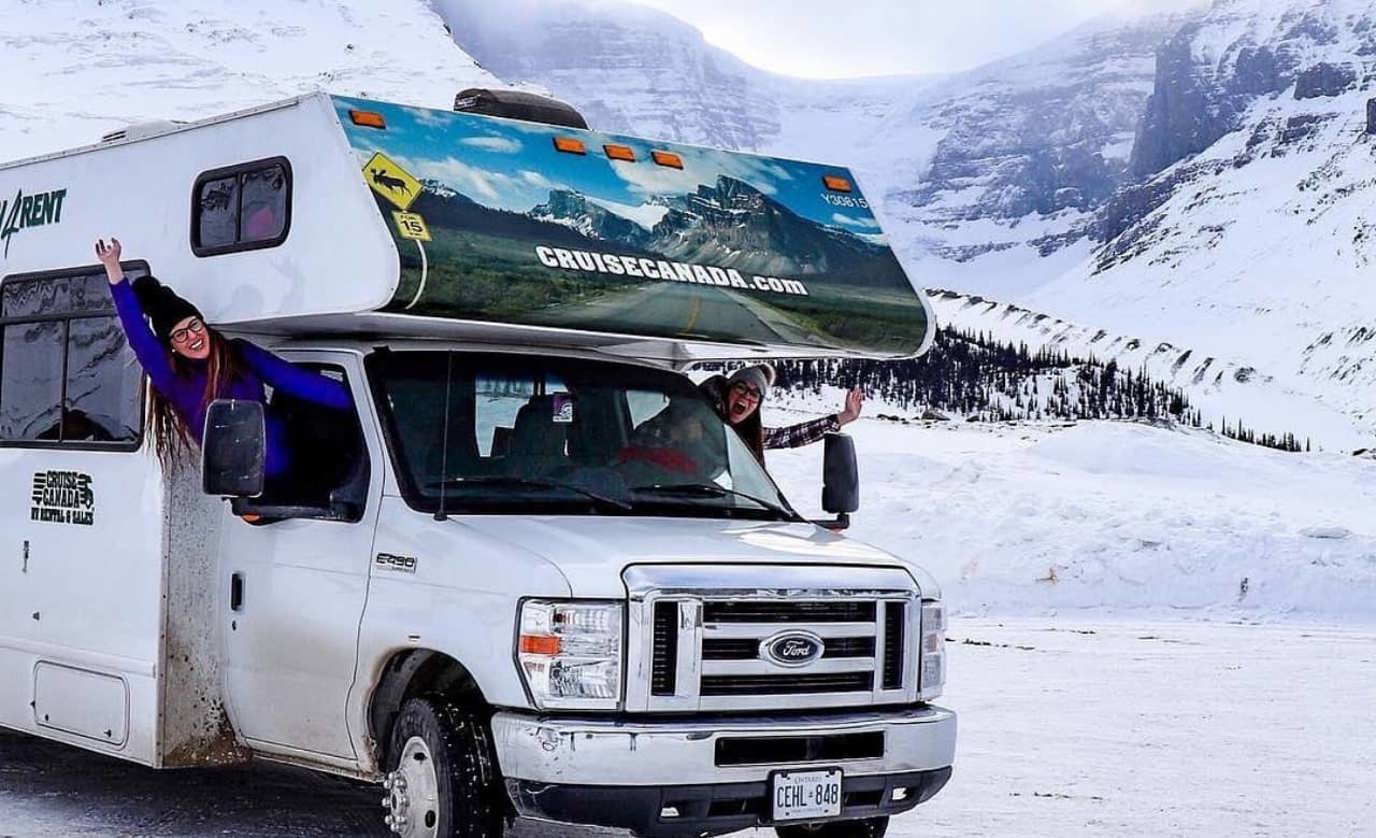
What is it like to live full-time in an RV in winter? We get this question all the time since people have trouble wrapping their heads around the idea that living full-time in an RV in winter is doable.
Let me assure you, RV camping in winter is very doable, but it takes some getting used to — and a lot of preparation!
RV Camping in Winter? Prepare Your RV for the Cold!
While living full-time in an RV in winter is in many ways far more convenient than a house, RVs are also far more vulnerable to the effects of freezing temperatures than a regular house is. Even if it is claimed that it is a "four-season" motorhome, if you don't take steps to winterize your RV, you could find yourself in trouble.
One winter's night at a northeastern campground, our pipes burst after lows hit subzero temperatures. See, unlike a house's plumbing system, the undercarriage of an RV is usually fully exposed to the elements. Without adequate protection, plumbing and hoses could freeze or burst — or both! — in extremely cold weather.
Don't forget the insulation!
We'd taken for granted that our RV was ready for the cold, but the opposite was the case: The belly of our beast wasn't properly insulated. Water in a pipe froze overnight, expanded, and caused it to burst. We learned the importance of RV underbelly insulation first-hand… an expensive mistake we won't make again!
Make use of heat tape
Nowadays, we get ready for winter by wrapping our RV pipes in thermostatic heat tape. It's not actually tape; it’s flat wiring or a cable you plug in that wraps around vulnerable pipes. It comes in various lengths and automatically activates in freezing temps; some kinds can keep pipes safe up to -40 degrees Fahrenheit!
As for your freshwater hoses, you can wrap those in heat tape, too — or purchase a heated water hose that you can swap out as the seasons change.
How To Stay Warm When RV Camping in Winter
Beyond keeping your RV in working order in winter, there's another challenge in staying warm inside! If you're living full-time in an RV in winter, you're going to get a lot of mileage out of your propane-fueled furnace.
Try not to run out of propane
If you purchased an RV in warmer weather — as we did — and never needed to run your furnace before experiencing living full-time in an RV in winter, then you're at something of a disadvantage: You don't know how quickly your RV's furnace will use up propane!
If you're staying at a campground that sells propane, you're in luck… but not every campground offers such an amenity.
We did actually run out of propane one time during the first winter we spent in our RV, but were saved by staying at a campground that, indeed, did sell propane!
After that first incident, we realized how quickly running the RV propane furnace could eat up our propane, and we did what we could to stock up. In addition, we learned how to make our propane last a little longer by heating up our RV and ourselves in other ways.
Alternatives to using your RV propane furnace
The truth is that you don't really need to heat up your whole RV overnight in winter; long as you can keep your bedroom as warm as you need it to be to comfortably sleep, you're good. Because we tend to stay at campgrounds with electric hookups as often as possible, we are usually able to use the mini space heater we have wherever we go.
Using that mini space heater along with sleeping bags rated for cold weather, we're able to save propane overnight and only use it when we really need it. This allows us to save propane to run the furnace when even a space heater and a thermal sleeping bag can't keep out the chill.
Stay Warm Outside When Living Full-Time in an RV in Winter
Of course, you're not going to spend all of your time inside if you're living full-time in an RV in winter. You're going to go hiking, fishing, and spend time by the campfire. Therefore, it is really important to ensure you have clothing that fits the season when cold-weather camping.
Outerwear is what likely comes to mind at the mention of clothes that fit the winter season — but that's not all you need. Since space is likely limited in your RV, you can't count on being able to store a mass of clothes for each season.
So, for winter, be sure you have some thermal base layers that easily fold up and don't take up a lot of space. You can wear less and still stay warm. Oh, and if you don't have insulated footwear, trust me — get some!
To Snowbird or Not To Snowbird?
By the way, some people avoid "winter weather" during winter as much as possible and venture down to southern regions just like the birds flock south. We tried the snowbird life ourselves but found that you can experience ridiculously cold temps even in places like Arizona!
Rather than run away from the cold each winter, we embrace it! By winterizing our RV when the weather gets chilly and having adequate clothing on hand, we can go practically anywhere we want in winter — limited only by nor'easters, or campgrounds that close until spring.
Ready To Go RV Camping in Winter? Try It!
Living full-time in an RV in winter is a rewarding experience, but it is not for the faint of heart (or the unprepared)! Hopefully, you're more aware of what it's like to go RV camping in winter and can eventually try it out yourself in an RV from Cruise America!





